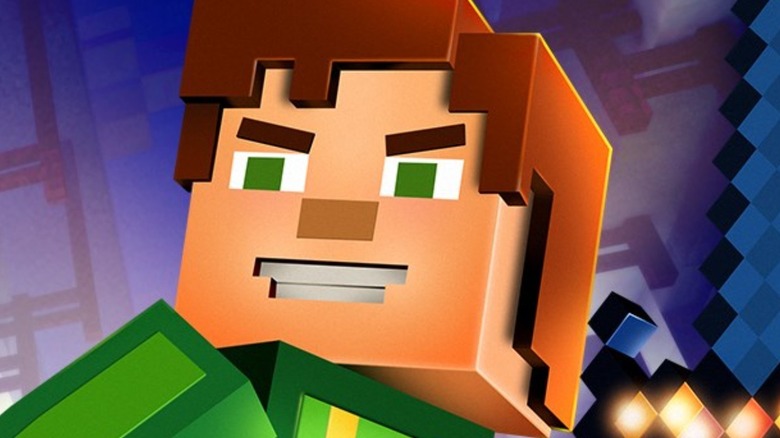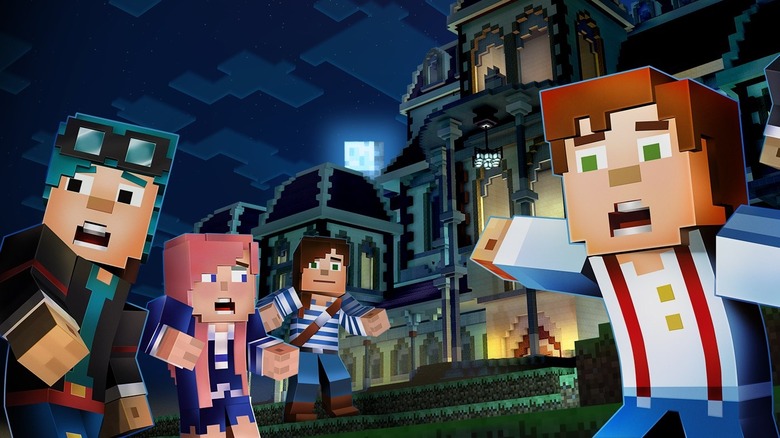The Real Reason Minecraft's Boss Was Worried Microsoft Would Ruin The Game
When the indie smash hit "Minecraft" was purchased by Microsoft, fans were worried. How would a game that epitomized the indie game ethos, both in its development process and in its gameplay, continue to exist under one of the biggest corporate entities in gaming? It turns out that fans weren't the only ones who were worried. Many of the developers who worked on "Minecraft" at Mojang Studios were concerned as well.
In a recent interview with GamesIndustry.biz, the head of Microsoft's "Minecraft" division, Helen Chiang, shared some of the devs' concerns about how the game would change once it changed hands. Chiang recalled, "Internally, the development team who had poured their vision, creative direction, and hearts and souls into developing this very successful indie game, wondered how quickly and how badly will evil Microsoft ruin Minecraft."
It turns out, Chiang revealed, Microsoft was also careful not to ruin the game that was so beloved by fans. To that end, Microsoft internally discussed the issue of keeping the core values of "Minecraft" intact and identified ways to try and prevent their new ownership from fundamentally altering the game. Here is how Microsoft's "Minecraft" boss worked to avoid harming the integrity of "Minecraft."
Microsoft made Minecraft more readily accessible
When Microsoft approached Mojang about acquiring "Minecraft," the game had already proven its potential for success. Months ahead of Microsoft's $2.5 billion 2014 purchase of the IP, Mojang's director of business development, Patrick Geuder, tweeted that the game had sold 54 million copies — making it one of the best-selling games in history at the time.
The challenge was, as Helen Chiang puts it, "How do you continue to nurture and grow a beloved independent game, and keep its independent spirit in essence, while honoring the unique team of people who created it, and the hundreds of millions of players who loved it?"
Microsoft's approach to this issue was to recognize its role as the "[steward] of this vast world," Chiang emphasized. Instead of trying to reshape the in-game "Minecraft" experience to something that might better monetize the game for Microsoft or limiting its sales on competing consoles, Microsoft chose to improve access to the game.
According to Chiang, Microsoft developed a new "Minecraft" base code that allowed players across different systems to communicate and share, which led to important features such as cross-play. Considering that "Minecraft" is still the best-selling game almost ten years after its official release, it seems like Microsoft's approach was largely successful, despite widespread worries from within the company and from the outside.


